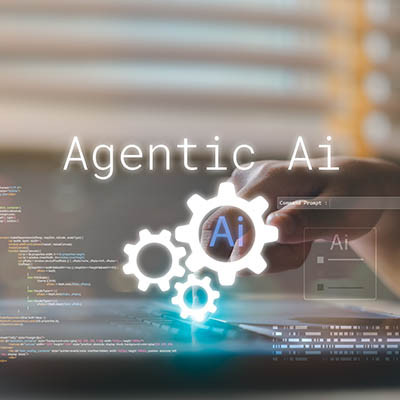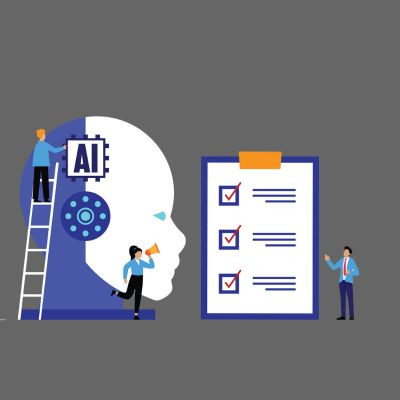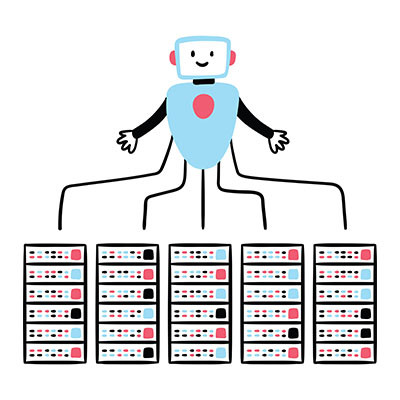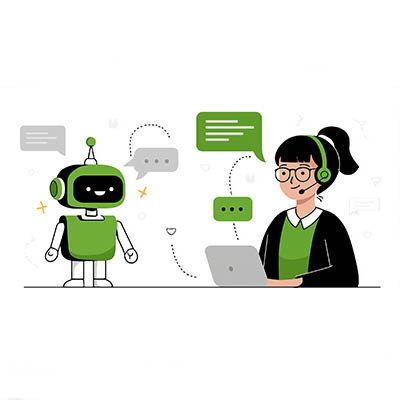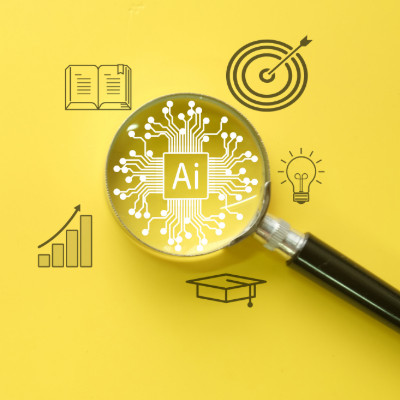Certain departments consistently struggle with IT, and one of them is Human Resources. HR is one of many departments that only works when you can ensure consistency. HR might be the people-centered part of your business, but when they are buried under compliance forms, payroll disputes, and other challenges, it’s easy to see why burnout is so prevalent.
PCSOFT Blog
Ubiquitous technology, used correctly, makes your business a powerhouse. Used poorly, it turns your company into a ghost ship, technically efficient but completely disconnected from your customers.
Some businesses are currently racing to replace their staff with AI. While they might save money upfront, they are often building a wall between themselves and the people they serve. Here is why keeping a human in the loop is actually your greatest competitive advantage.
With the new year just around the corner, you’re probably wondering what the latest cybersecurity threats will have in store for small businesses like yours. One such threat is the rise of agentic AI, which capitalizes on the weakest link in any business’ cybersecurity infrastructure: its human elements. If you already have a hard time figuring out if the person on the other end of the phone line is human, just wait… It’s only going to get worse.
As an IT professional, I'm used to dealing with change. It's the nature of the job. What we're experiencing now isn't just change, it's an exponential acceleration of innovation. The rate at which new technologies are emerging, maturing, and disrupting entire industries is faster than ever before. This velocity shift isn't a random event, it’s driven by three key factors coming together in perfect harmony. This month, we will take a look at them.
You can’t wake up anymore without hearing something about AI, and in the business world, there’s almost a sense of peer pressure around it. Nowadays, you have to be using AI, or your business will be left behind… or at least, that’s the narrative.
While we are in no way discouraging you from adopting AI, we are saying that moving forward without a plan is likely to waste your money. For AI to work the way you want and need it to, you need to have done the homework and laid a foundation for success.
Artificial intelligence has reshaped the relationship that many people have with technology, and especially how we work and communicate. Despite this, there are plenty of challenges that the technology faces—especially if it wants to remain sustainable. Today, we want to look at the fuel that keeps these platforms running—the data center—and why it’s important to consider them in the context of the AI conversation.
Artificial intelligence, or AI, is practically now a household name, and it’s changing the way we think about work, communication, and even innovation. It takes a lot of power and infrastructure to fuel these systems, however, and they wouldn’t be possible without the data center. These structures are the powerhouses that enable AI, but what does a data center for AI look like?
When the time comes that you have to make a big decision—one that could have some significant impact on your business, for instance—what does your thought process look like? Do you rely on data, or do you rely on what your gut tells you?
If it’s the latter, you’re literally relying on your least accurate information and hoping that you get the most beneficial outcome. Instead, why not rely on the other, quantitative and confirmed data your business has collected over the years and pair it with the analytical prowess of AI tools?
We’ve all been given an impression of what artificial intelligence is or will ultimately become through pop culture. HAL 9000, Skynet, Ultron, and M3GAN each show their own form of calculated malice.
However, in reality, the true potential of AI is more in line with the likes of Rosie the Robot, JARVIS, R2-D2, or Data, helpful companions who assist their cohort in generating ideas or completing tasks, often leaning on the soft skills that have been so valued in human relationships, things like curiosity, empathy, and resilience. Let’s consider how we can embrace these soft skills and better utilize the tool at hand.
Operational efficiency is pretty important for businesses. Wasting time, money, and resources can stifle growth and put you at a competitive disadvantage. Fortunately, technology offers powerful solutions used to eliminate common inefficiencies. Today, we want to go through five ways you can use technology to drive real results.
AI is a game-changer, there's no doubt about it. From the value your business gets from streamlining operations to its powerful information retrieval, it’s changed, in a very short amount of time, how knowledge-based businesses operate. If you're thinking of handing over your entire customer support operation to an AI, however, you need to pump the brakes a bit. While AI offers incredible efficiencies, completely removing the human element could be a problem for your business.
AI is all over business and offers immense potential, but like any other technology, its misuse (including over-reliance) can lead to serious problems. To prevent AI from hurting your business, you need to understand the key pitfalls and thoroughly manage governance. Think of AI as a powerful, specialized tool that requires careful handling.
Hope can be enough to keep you moving forward, even when the world feels heavy and dark. While it’s good to keep hope in your heart as a light to help you push onward, it’s not a very good cybersecurity strategy. Hope won’t stop a data breach, a ransomware attack, or a phishing scam, and it certainly won’t keep you safe when cybercriminals only need one slip-up from anyone in your office to ruin your day.
Artificial Intelligence (AI) is everywhere these days. It has become a standard feature in many business tools and devices. This means a lot of people are using it day-in and day-out. The question becomes: Is it truly beneficial, or does it create more headaches than it solves? Let's explore how AI can actually help your business.
For any growing business, strategic technology leadership is non-negotiable. It’s the force that drives efficiency, security, and innovation. Yet, for many small and medium-sized businesses, the cost of a dedicated Chief Information Officer (CIO) is a significant barrier to getting the technology and strategies to do so. This has led business leaders to ask a critical question: Can Artificial Intelligence do the job?
AI is everywhere. In a relatively short amount of time, artificial intelligence has exploded from being a fringe feature to becoming standard kit in many—some may argue most—applications and devices, particularly those intended for business use.
The truth is that it’s hard to tell whether AI could bring a business a ton of benefits or if it ultimately generates (pun intended) more problems than its worth… at least, without a concerted effort to make those determinations. Let’s see what we can do to make sure it is beneficial.
You can’t run a business these days without hearing about how AI is changing the technology landscape and what that means for your organization. It gives SMBs like yourself some serious power, often enough to do more complex tasks that it couldn’t otherwise do without significant time and effort investments. But sometimes it’s more about the easy wins, so that’s what we’re covering today: the simple ways your organization can shift operations with AI.




